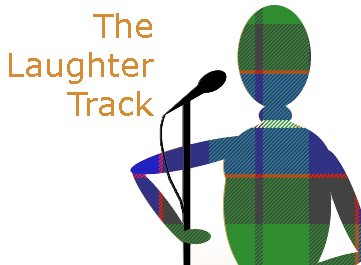
One of the impressive things about The Stand is that they don’t merely put on good comedy nights, they also work hard to develop the local comedy scene. It’s an important service in an industry which is so focussed on London that comics in other parts of the country can often be isolated and find it difficult to get exposure. This night featured three comics who had come through the ranks to become regulars at the club, and have been able to use that as a springboard to bookings nationwide.
Fast talking Glaswegian Susan Morrison is a regular MC at the club, and it’s a role she has learned to fill superbly well. On this night, with the entire front row occupied by a stag party, she had plenty of material to work with, and unlike some comperes she doesn’t pussyfoot around but jumps straight in with both feet. Brash, brassy and bottle-blonde may just be the perfect combination for a female host, her patter is bold and innuendo-laden but she never loses control of her audience.
The importance of a good MC is highlighted when one of the acts is below par, and I’m going to give Padraig Hyland the benefit of the doubt here, he has a good reputation and has reached a certain level of success but he would probably be the first to admit that his performance on this night was not good. It didn’t help that a heckle within the first minute provided a punchline to a joke that was funnier than the one Hyland himself eventually produced. He never seemed to recover from that moment and, despite a good line here or there, for most of his set he seemed to be struggling to remember his lines and frequently losing his thread, and some parts of his set were notable only for an embarrassed silence.
No such problems for Jack Whitehall however. The standard setup for a weekend night at The Stand sees a headliner, two established comics and someone new, young and fairly unknown in the ten minute try out spot. It is rare that the occupant of that ten minute spot turns out to be the best act of the night. I don’t think I’d be sticking my neck out very far in predicting that within a few years Whitehall will be coming back to headline nights like these. His opening disclaimer about his middle-class upbringing worried me for a moment, when a comic opens with an apology it is often a sign he isn’t confident in his own material. But within a minute all such worries had fallen away as he demonstrated a superb command of the English Language and a talent for brilliant social mimicry.
Joe Heenan has become very much a Stand regular, and the probably the most apt word to apply to him is “dependable.” Very much a blokish comic, he looks and sounds like someone you could enjoy a pint with, and he is adept at very quickly bringing an audience onto his side. Moreover, you get the impression from watching him that his act is not meticulously planned in advance, rather that he has a wealth of material to draw on and an ability to think fast on his feet and tailor the set to the particular audience he is faced with. Whether the case or not, his was a safe pair of hands to keep the momentum of the night going.
Vladimir McTavish is a brash, straight-talking Glaswegian schemie who is the comic invention of Paul Sneddon, a comedian also responsible for the drunken football pundit Bob Doolally. Originally created to present an alternative Scottish history lesson, McTavish has now become pretty much Sneddon’s main business and he tours extensively under the name. His humour is from the streets, often coarse and presented in an aggressive style. Most of his set is based around the Scottish experience, from Burns suppers to the smoking ban and hatred of the English, and in truth he mainly picks easy targets. It was an entertaining enough end to the night, but maybe slightly disappointing as a headline act having failed to surpass the two acts which preceded him.





